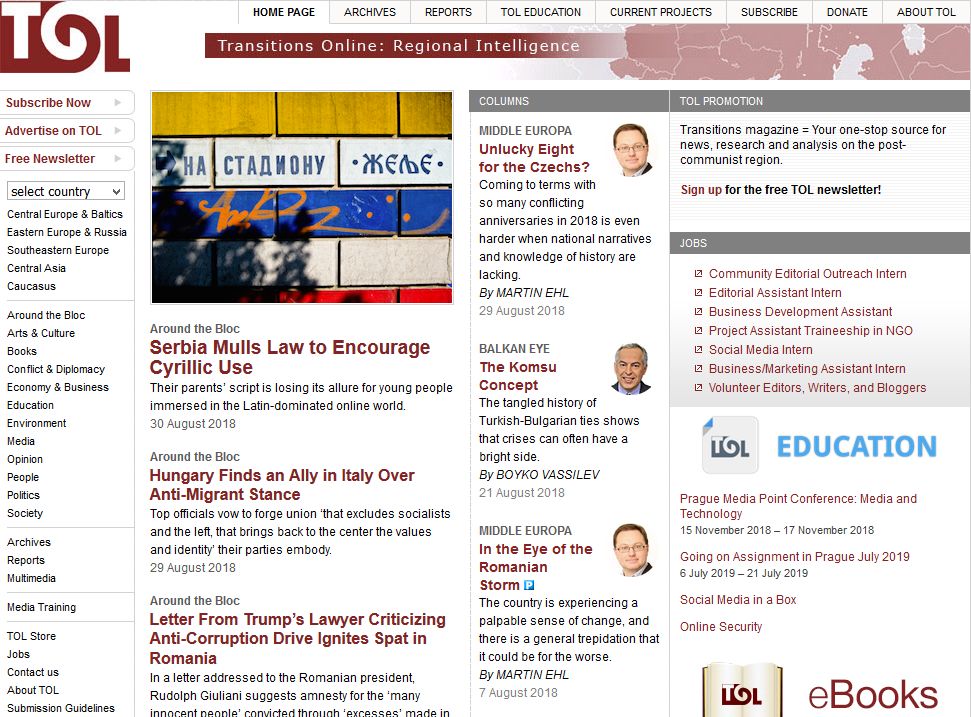
Transitions Online_Around the Bloc-Russian Night Wolves Settle Down in Slovakia
Slovaks are asking how a Russian biker club close to Vladimir Putin was able to open a branch in their country in a compound shared with a paramilitary group.
More...We kindly inform you that, as long as the subject affiliation of our 300.000+ articles is in progress, you might get unsufficient or no results on your third level or second level search. In this case, please broaden your search criteria.

Slovaks are asking how a Russian biker club close to Vladimir Putin was able to open a branch in their country in a compound shared with a paramilitary group.
More...
In latest incident, a prison officer has been sacked after an inmate died of apparent suffocation.
More...
Karekin II is known for luxurious tastes and close ties to former president Sargsyan.
More...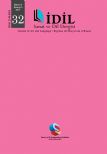
In urban areas, physical and social texture damage, which is the result of economic and social factors, can be eliminated by revitalization. Transformation of the space in the axis of culture and art can enable the corrupted areas to participate in life and original practices leading to the living conditions of the inhabitants of the environment can emerge on the initiative of the civil initiatives. Revitalization projects formed by participatory processes that art creates attractive power strengthen not only physical space but also social, economic and environmental conditions by strengthening social relations and sense of belonging. These practices include the revitalization of abandoned industrial structures by cultural arts function, as well as the large recreation areas and parks where art works take place, in the rehabilitation of industrial areas. In the revitalization projects, through the intervention of artists entirely transformation of the space brings together the social texture of the city and the new language of art.
More...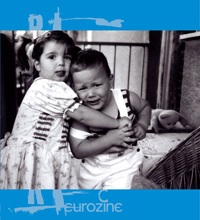
“Cosmopolite” was once a pejorative code word used to denounce Jews, anarchists, pacifists and others who refused to accept the call for fixed borders coming from the nation states. Now, in another historic turningpoint, cosmopolitanism makes a comeback. Per Wirt én discusses what it means to be cosmopolitan both today and in historical terms. Religion has successfully been separated from the state, he argues. The same should happen to the nation.
More...
“Cosmopolite” was once a pejorative code word used to denounce Jews, anarchists, pacifists and others who refused to accept the call for fixed borders coming from the nation states. Now, in another historic turningpoint, cosmopolitanism makes a comeback. Per Wirt én discusses what it means to be cosmopolitan both today and in historical terms. Religion has successfully been separated from the state, he argues. The same should happen to the nation.
More...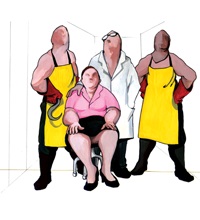
Na dan 21. januara 2000. izraelski dnevni list Ma’ariv objavio je dug članak o masakru u Tanturi. Članak je napisao novinar Amir Gilat, a zasnivao se uglavnom na magistarskoj tezi Tedija Kaca, studenta Odseka za istoriju Bliskog istoka Univerziteta u Haifi. Teza pod naslovom “Egzodus Arapa iz sela u podnožju Južnog Karmela” dobila je najvišu ocenu za magistarski rad... [...]
More...
There was a brief moment late last year when it seemed that Hungary actually surpassed Western countries such as Germany, Sweden or the United States in tolerance of the sexual minorities. In October 2001, Karoly Raez, or as s/he is better known, Terry Black, an entertainer working as a transvestite, rejoiced in Hungarian media over the fact that she was allowed to adopt a baby. She emphasized how proud she was to be the first transvestite in Europe to have been granted the right to do so. […]
More...
Istoriju medijskih istraživanja jasno su obeležile tri različite faze u shvatanju medijskih učinaka. U svakoj od njih dominantno teorijsko stanovište formulisano je u skladu sa vladajućim uverenjima o značaju komunikacije u društvu i prvenstveno se ticalo političkih efekata masovnih medija. […]
More...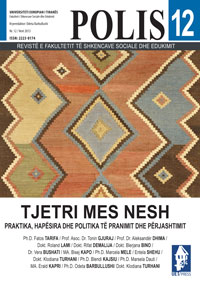
During the period 1998-2005 international organizations, Albanian civil society groups and the Albanian Government implemented a multidimensional anti-corruption program in Albania. This program ranged from anti-corruption awareness campaigns that sought to educate the general public about the dangers of corruption to specific policies that sought to reduce corruption levels in the Albanian governance. After an intensive and multidimensional ëar that lasted for almost eight years corruption levels in Albania did not change substantially. On the contrary, some phenomena such as state capture, increased during the 1998 – 2005 period. In order to explain this paradox I argue that the anti-corruption campaign in Albania served to institute the neoliberal order in the country. Thus, while unsuccessful in lowering corruption levels it succeeded in strengthening the neoliberal order in Albania. Corruption served as a threat against which the neoliberal order could be legitimized.
More...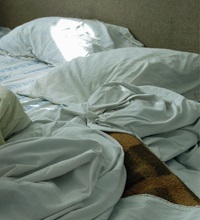
storija građanske neposlušnosti veoma se razlikuje od istorije prava na otpor tiraniji. Kao što smo već u prvom odeljku trećeg poglavlja mogli da vidimo, u izvornom hrišćanstvu ne postoji ni ideja prava na otpor tiraniji, ni koncepcija građanske neposlušnosti, već jedino mogućnost neposlušnosti iz razloga savesti. Zato će sokratovsko nasleđe građanske neposlušnosti veoma brzo usahnuti, da bi se, najkasnije u srednjem veku, okončao proces utapanja svakog oblika neposlušnosti u pravo na otpor tiraniji (Kaufmann, 1991a: 40-41). Razlikovanje prava na otpor tiraniji i građanske neposlušnosti dosledno će biti uspostavljeno tek mnogo kasnije, uporedo sa razvojem institucija demokratske ustavne države (Dreier, 1991a: 39). Za ovo uspostavljanje dve stvari biće presudne. [...]
More...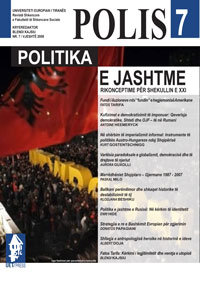
This article tries to shed light the limitations of democratisation through the prescription of global norms by focusing on Romania. First of all, the article aims to show some salient aspects of the notion of governance and transparency as it is prescripted from the international level to the post-communist countries. Then, the result of a monitoring operation about a law on transparency realized by an NGO is analysed and then it is compared to an affair of corruption concerning the government. In this way the limits and the consequences of this policy (democratisation) for the actors such as NGO, the state and political parties, appear more clearly. In the same way as the political technology of democratisation, the quest for ‘transparency’ is more oriented towards inter-national standardisation and legitimation than towards local problems.
More...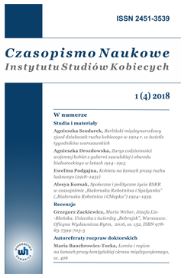
The article evaluates the location of women in the professional sphere in relation to men based on indicators: education, occupational activity, employment, unemployment, working according to economic sectors, wages, dismissals from work and employment, foreign migrations and entrepreneurial factors. The subject of the analysis are indicators from 2014-2015 in five eastern voivodships (Lubelskie, Podkarpackie, Podlasie, Świętokrzyskie, Warmia and Mazury) against the background of Poland.
More...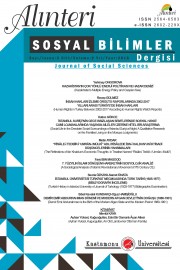
Human Rights Watch is one of the international human rights pressure groups. The annual reports address the development of countries' human rights. The pressure groups aim at influencing the policies that governments follow. The reports published by the Human Rights Watch, are to make the states revise their internal and external policies. This study examines the reflection of human rights in the reports, especially during the periods of the ruling Justice and Development Party (AKP), 2002-2017. The main reason why we deal with the reports published between 2002 and 2017 is to reflect on the policies pursued by a party that defends democracy and emancipates and attaches importance to human rights. The reports were analyzed by Nvivo11 qualitative analysis. The reports being exposed to content analysis, it became clear that freedom of expression, Kurdish rights and torture were given more importance. Human Rights Watch has not been objective in Turkey’s fight against terrorism. However, according to the reports, during the JDP government period, there is a decline in the promotion of human rights.
More...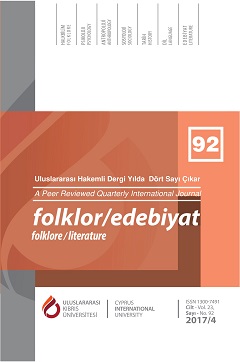
The Spanish Civil War divided the Spanish nation into two parts; as supporters of the Republican Army and the Rebellion Army between 1936 and 1939. The Republican Army was supported by the USSR, and the Rebellion Army was supported by Hitler’s Germany, although the neutrality of the international public was in place at the beginning of the war. Thus, the Spanish Civil War, in a sense, turned into a competitive field of international powers. While Germany and the USSR were involved in the war, many citizens of the other countries are motivated by the indifference of their own countries to the Civil War. Brigadas Internacionales (International Brigades), a group of international volunteers whose number was around 40.000, came to fight in the ranks of the Republican Army. There were many famous poets, writers and activists in this volunteer brigade. Despite the fact that those foreign authors participating in the Civil War did not have great success in arts, their spiritual support and testimonial works have great importance. It is not possible to examine all the foreign authors that participated in the Civil War. The aim of our study is to examine the authors that participated in the Spanish Civil War and their Turkish translations about the Civil War, either during or after the war. Thus, it is aimed to contribute to the Turkish literature describing the Spanish Civil War.
More...
This article is driven by an interest to explore the role of local Civil Society Organizations (CSOs) and community-based organizations (CBOs) that deal with Syrian refugees in Lebanon seeing the void left by the Lebanese weak state to cope with this situation. How the Syrian conflict has affected the civil society landscape in Lebanon and how the inflow of international aid has affected the work of this local CSOs, as well as, their relationship with Lebanese state authorities on the national and local levels are examined. To this extent, the ways in which the management of Syrian refugees by local CSOs and CBOs has been affected by external factors, including the Lebanese government policies and the role of international organizations (EU, UN) in managing the crisis in Lebanon are examined. Since the beginning of the Syrian conflict and the influx of millions of refugees into Lebanon, the civil society sector in Lebanon has undergone significant transformations. To cope with the overwhelming number of Syrians living in Lebanon, Lebanese civil society has expanded with the creation of new CSOs as well as the introduction of additional programs and projects in existing CSOs to assist refugees. These civil society organizations fill a void created by the Lebanese government in its unwillingness or inability to assist with the refugee response in the areas of healthcare, education and vocational training.
More...
Turkey’s accession to the European Union has turned out to be a very long saga. One of the concerns in Europe is that Turkey’s membership would open the way for millions of immigrants from Turkey arriving in Western European member states, as was believed to be the case with Eastern European enlargement in the 2000s. This paper focuses on migration flows and causes of human mobility while drawing upon the Gallup World Poll on migration in Europe with particular reference to the data on desire to migrate permanently from Turkey and to Turkey. The Gallup World Poll is an on-going project surveying residents in more than 150 countries on a variety of topics including international mobili-ty. The full data set includes over 400,000 face-to-face interviews conducted in 2009, 2010 and 2011. Despite excep-tions with different sample sizes, in each of the 160 countries 3,000 cases were collected as part of a larger survey. Turkish respondents have lower desire to emigrate compared to the rest of the world while Iranians and Germans are top groups who desire to migrate to Turkey. The data shows that Turkey has been a growing economy and attracting immigration while also producing emigration. Turkey’s overall socio-economic and political record suggests that the desire to migrate from Turkey will continue despite recent economic advances. Nevertheless, the Gallup data shows that the level of desire to migrate in Turkey is remarkably lower than many neighbouring countries and Europe.
More...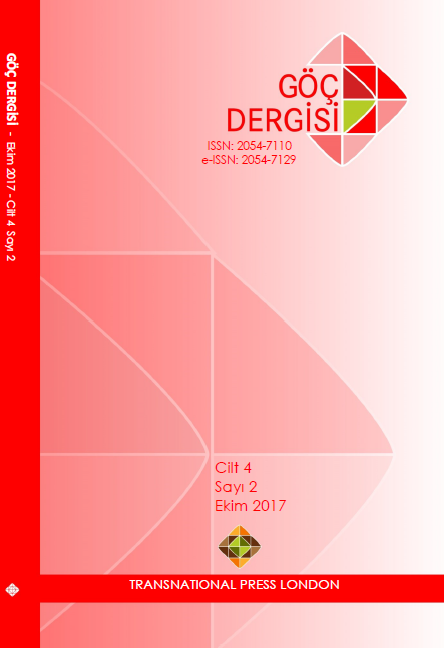
In this research, posts which are about Syrian refugees were published in a social media platform, called as “sözlük” were investigated. The research is a qualitative research. The posts in this platform are analyzed with content analysis method. According to results of analyses, social media users see Syrian refugees as people who create an insecure and a restless environment. The experiences people had with them and news have an effect on this view. In addition, social media users think that government made inappropriate policies and ineffective plans about Syrian refugees. It is suggested negative news about Syrian refugees should be decreased and government should make safer policies. In addition, adaptation of refugees to society should be made in more planned and effective way.
More...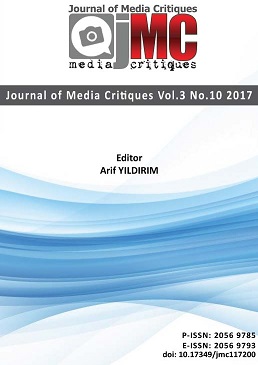
Previous studies have noted the dominance of official sources within the news process and their unique ability to shape media narratives. This research addresses the role and implications of news sources in contributing to the overwhelmingly positive portrayal of the anti-Mubarak opposition protesters within British and American newspaper coverage of the 2011 Egyptian Revolution. Furthermore, this paper will assess how the position of global political elites towards the protests in Egypt possibly opened up the editorial space within the news coverage of the revolution for the anti-Mubarak opposition movement to emerge as the dominant voice within the reporting.
More...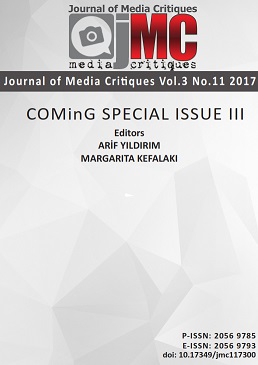
Widespread usage of the Internet services in all over the world has resulted in implementation of the Internet censorship -restrictions on what can be publicized or viewed on the Internet- and the surveillance society in many countries. The Internet access restrictions and censorship are being used by some governments to control and suppress individuals’ sharing and reaching information on the Internet. In this study, following a theoretical discussion based on the review of relevant literature, individuals' perceptions related to the Internet censorship in Turkey is demonstrated based on a qualitative research in the form of semi-structured interviews. The findings of the study revealed that the Internet censorship is considered as a major obstacle restricting individuals’ freedom of getting information, sharing their opinions and communicating with others. Furthermore, internet users implement self-censorship while posting their opinions about especially political issues since they feel fear, anxiety and pressure stemming from restrictions and surveillance.
More...